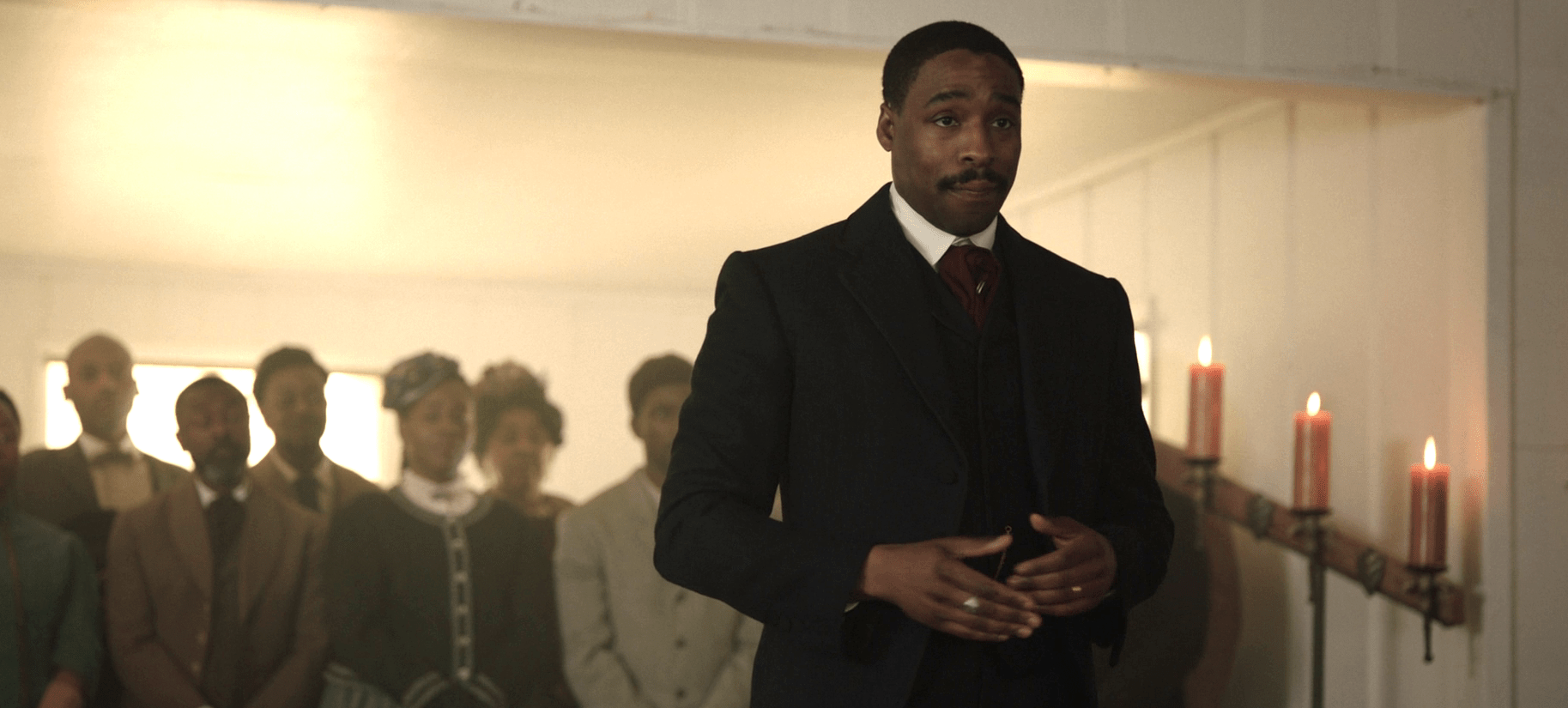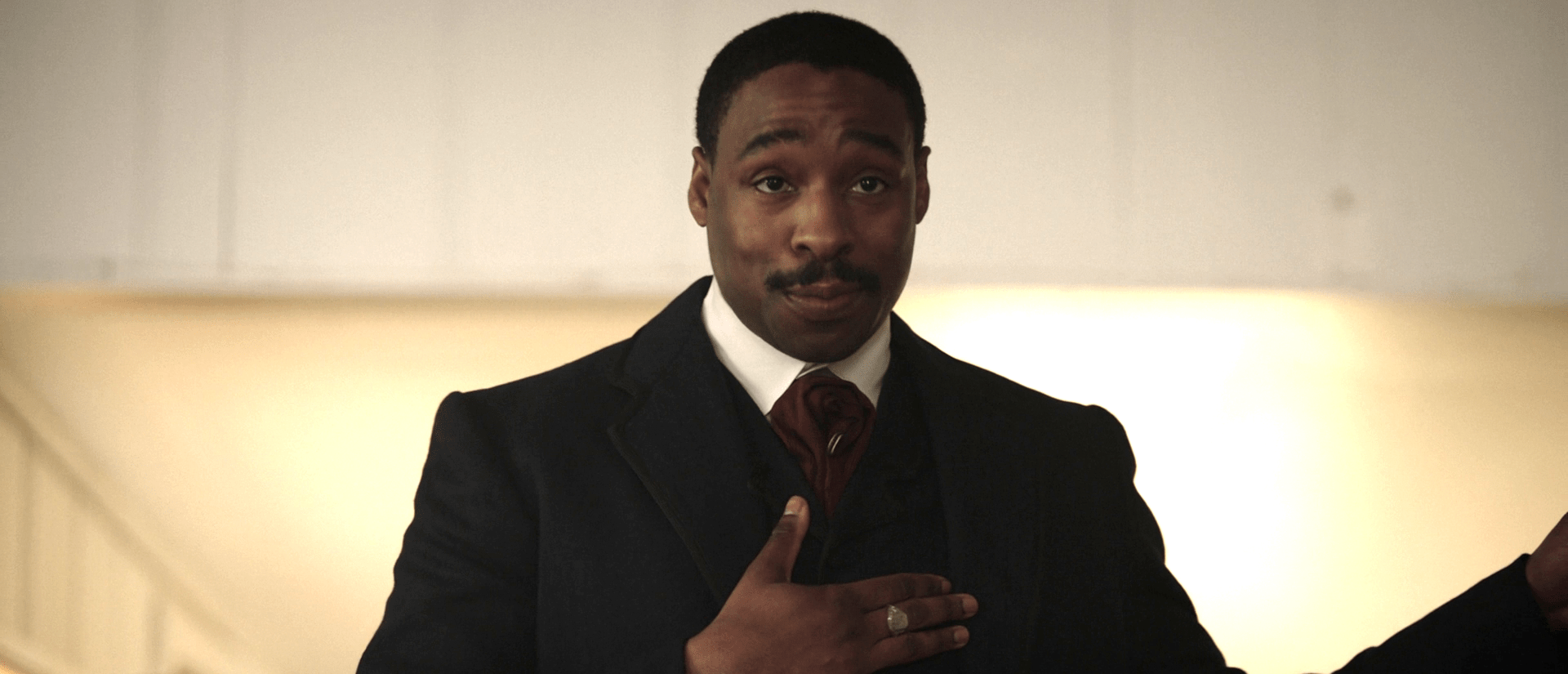In the fourth episode of Paramount+’s Western series ‘Lawmen: Bass Reeves,’ Bass’ wife Jennie Reeves meets Edwin Jones, a Black businessman and visionary who is committed to uplifting his community from the white man’s chains. Edwin addresses Jennie’s congregation and expresses his wish to see every black person having their own land so that they will not be answerable to the white men who are currently controlling the former group. Edwin’s aspirations inspire the churchgoers, who start dreaming of owning their own soil. A businessman and activist, Edwin affects the lives around him with his vision and ambitions, which make him appear rooted in reality!
Edwin Jones is Not Based on a Real Person
Edwin Jones is a fictional character conceived by creator Chad Feehan and his team of writers. Edwin serves as the polar opposite of Bass and by their juxtaposition, Feehan succeeds in exploring the two sides of black identity towards the end of the nineteenth century. As far as Bass is concerned, as a deputy marshal, the laws of the land are as important as the Bible for him. He doesn’t stray away from the same even when he is in a position to take advantage of it for his personal gain. Bass sticks to his oath and follows the words of the law without any compromise.

What Bass doesn’t realize is that the same law affects the black and Native American communities more than it affects white men. Even when he sees a black man getting sentenced to death for defending himself while suffering from immense poverty and hunger, Bass fails to side with him. He accepts the white man’s law that sentences a fellow brother to death for trying to kill one’s hunger. Bass gradually gets separated from his identity as a black man to become an outright lawman who has to accept the law targeting his community.
Edwin, on the other hand, prioritizes the well-being of the black community. He knows that the potent white men are trying to remain superior, by both force and law, when his community is lacking necessities. He wants the same to end so that his fellow brothers can be liberated for good. While the law of the land blinds Bass from seeing the atrocities the black people around him have to suffer, Edwin walks to the heart of the conflict to uplift his community. He wants the people around him to experience the freedom and independence he has been cherishing. Although his optimism can be overwhelming, he knows that the foundation of any act is dreaming the same first.
A Window to the Black Experience
Even though Edwin Jones is a fictional character, he succeeds in shedding light on the real atrocities black people had to deal with towards the end of the nineteenth century. Although the Thirteenth Amendment abolished slavery, the black community was far from leading a prosperous life. The lack of land ownership and education troubled the community. In addition, white men filled the government positions, which formed an imbalance of power between the two races. The fictitious Edwin points his finger to this harsh reality in the series, which helps the viewers understand the circumstances in which Bass grew and became a deputy marshal.

In the upcoming episodes of the series, we can expect Edwin and Bass’ ideologies to clash. Edwin, upon getting acquainted with the Reeves family through his wife Esma, may confront Bass’ adherence to the white man’s law. The businessman may try to convince Bass that he is doing the white man’s dirty work against his own brothers. The activist may turn Bass’ vision from the world of the outlaws far away to the disappearances and mysterious deaths of black people that happen right in front of his home. After his potential interaction with Edwin, Bass may try to understand where his loyalty lies.
Read More: Bass Reeves: Was He a Confederate Soldier? Was He the Lone Ranger?


You must be logged in to post a comment.